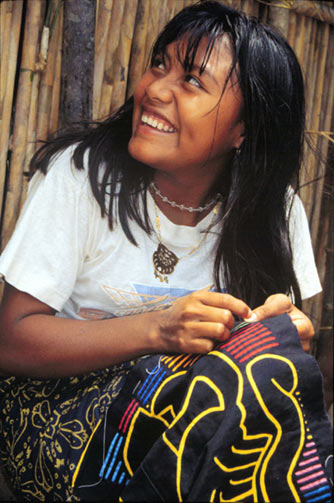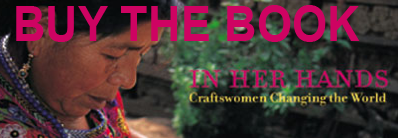
Eagerly, I read the news about the 1995 United
Nations Fourth World Conference on Women, in Beijing: throughout developing
and transitional societies, poor women use the money they earn to buy
food and education for their children. Most men spend on other things.
But indigent women invest in their daughters and sons--motivated by knowledge
that the present is not good enough.
Books, uniforms, shoes, notebooks and pencils, and bus fare to and from
school are almost out of reach for indigent women, even if tuition is
free. Many are illiterate and their access to resources is limited; yet
their energy, ingenuity and commitment make it possible for them to earn
the necessary funds, often by juggling four or five income-generating
projects at a time.
I wanted to meet these micro-entrepreneurial heroines. What were their
dreams and disappointments, their triumphs and pleasures, their accomplishments
and predicaments? How did earning money affect their lives and relationships?
Did they have anything in common with the women in American corporations
whom I worked with and taught?
I invited my friend and former colleague Toby Tuttle to share in the project
and she agreed without hesitation. The women in this book became our friends
and teachers. From them we learned about creating an artistic, social
and economic legacy. And we learned that the world is smaller-and women's
spirits are larger-than we had ever imagined.
© Paola Gianturco and Toby Tuttle 2003-2009

